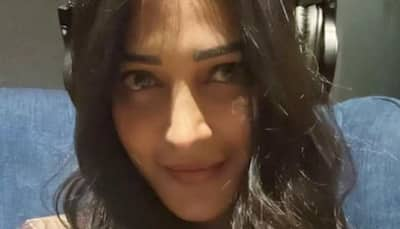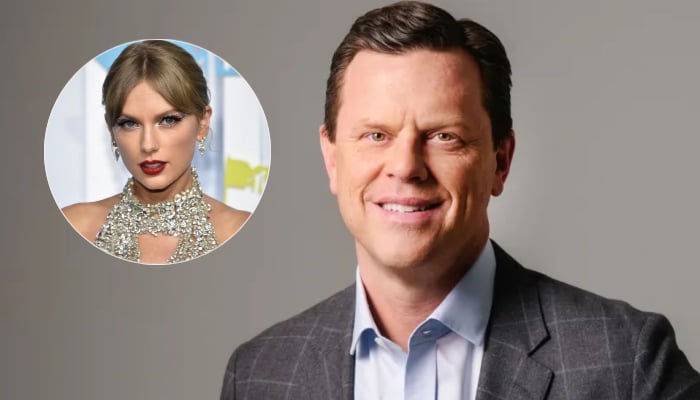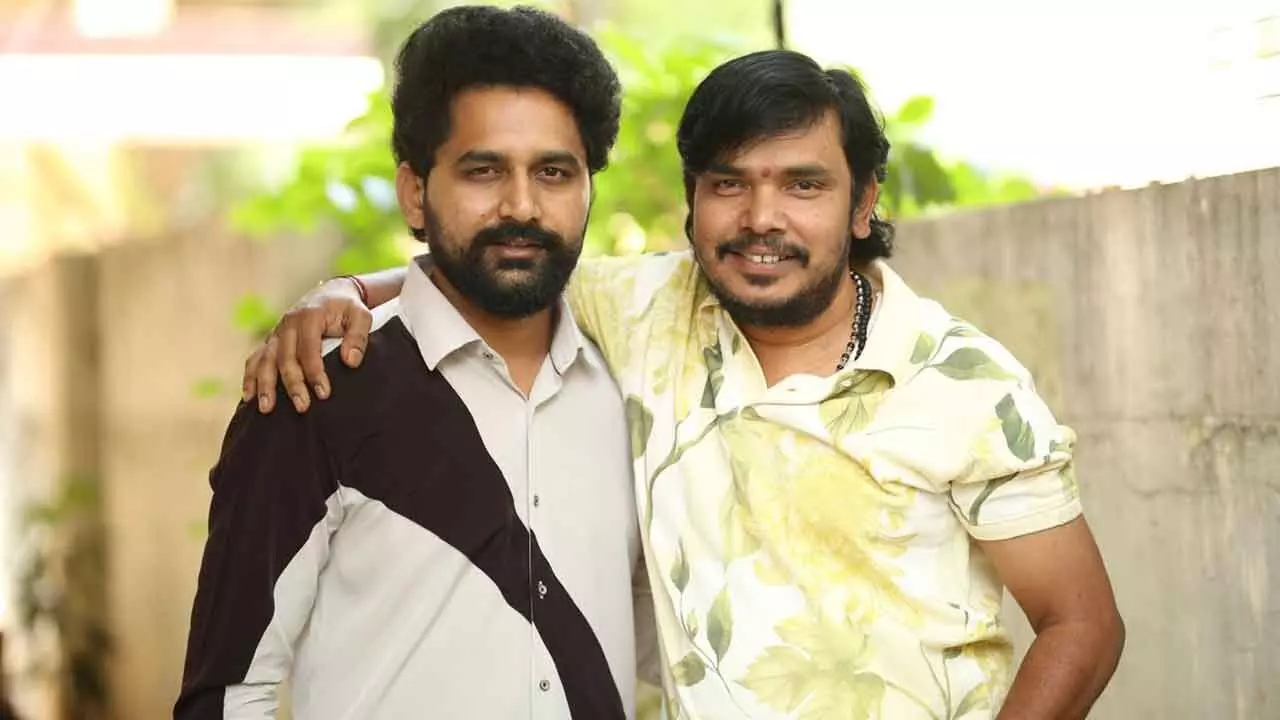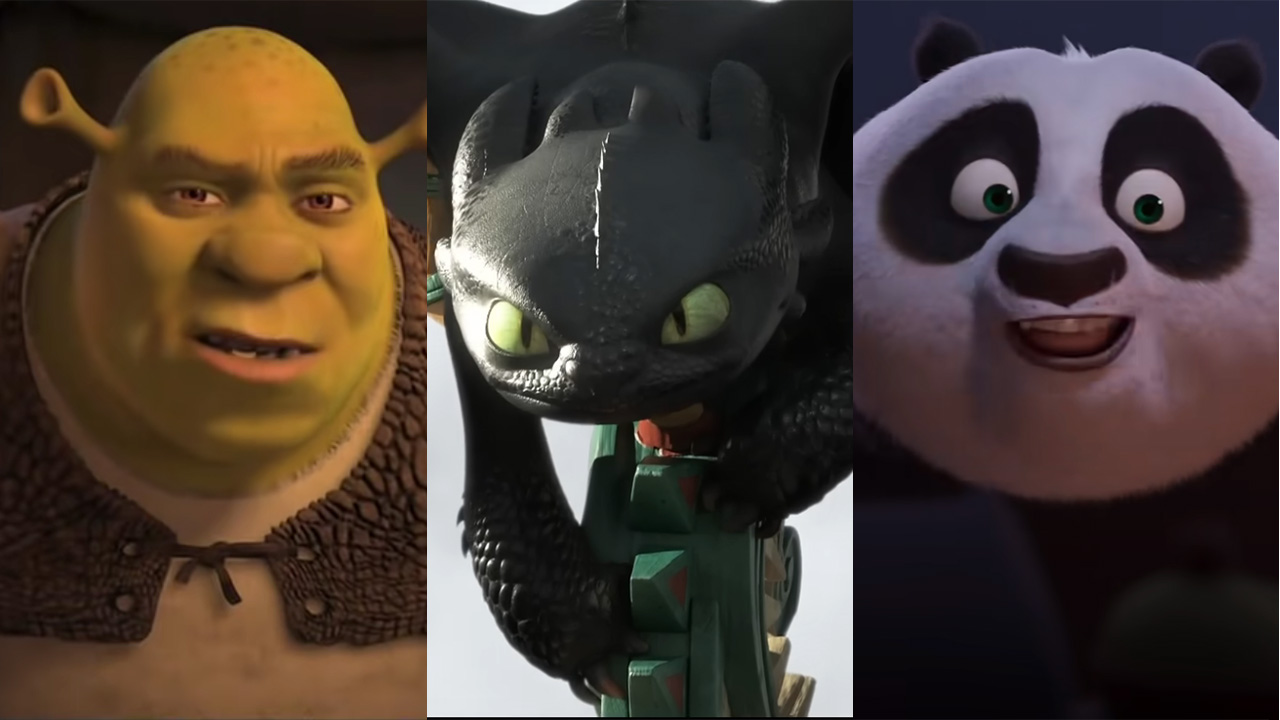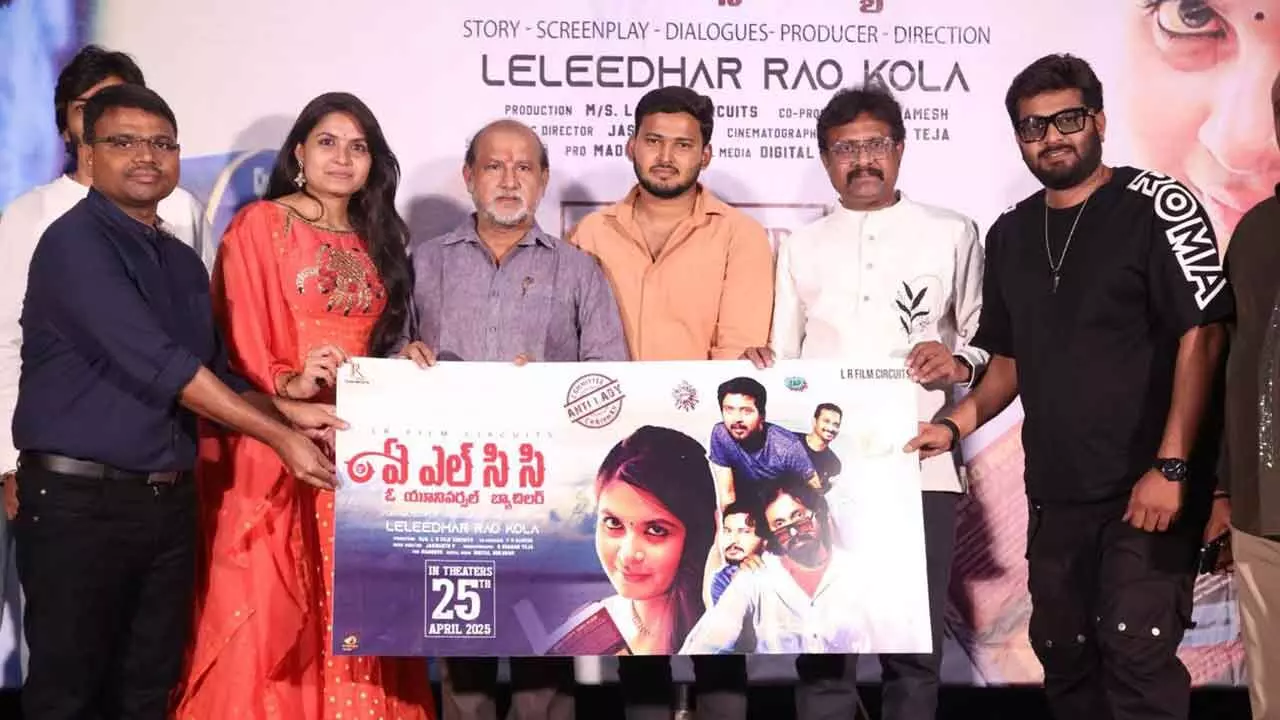In this exclusive interview with News18 Showsha, Aaliyah Qureishi—actor, singer, and all-around creative force—opens up about her unforgettable stunt scene with Shah Rukh Khan in Jawan, channeling teenage chaos for Nadaaniyan, and why she believes in slow love in a fast world. Meet Aaliyah Qureishi—better known to her legion of fans as Jhalli—a name that’s become synonymous with raw talent, fearless creativity, and an unapologetic refusal to be boxed in. She’s the fiery redhead who breathed life into Sahira, the morally tangled teen of Nadaaniyan, navigating abandonment and impulsive choices with a vulnerability that’s as captivating as it is polarizing.
She’s also Ananya, the quiet storm of Bandish Bandits, whose unrequited love and artistic soul have stolen hearts and sparked debates about who truly deserves the spotlight. And then there’s her music—her latest single Ishaare, a soulful, groovy duet that dances on the edge of situationships and slow-burn romance, proving she’s just as much a storyteller with a melody as she is with a script. But who is the woman behind these unforgettable characters and haunting tunes? In this exclusive interview with News18 Showsha, Aaliyah pulls back the layers with the same honesty and depth she brings to her craft.

From tapping into her own socially awkward high school days to find Sahira’s bold chaos, to locking eyes with co-stars in trust exercises that blurred the line between rehearsal and real emotion, she reveals the personal threads she weaves into every role. She takes us behind the scenes of Nadaaniyan’s collaborative workshops, where a month of script readings and Interstellar-scored vulnerability forged a cast chemistry that leaps off the screen. She reflects on the calm, steady hand of her first female director, Shauna, and the surreal thrill of leaping off bridges with Shah Rukh Khan—moments that feel ripped from a blockbuster reel but are just another day in her extraordinary life.
Aaliyah doesn’t stop at acting. As a musician, she’s part of a new wave of Indian artists breaking molds, blending classical influences with modern beats, and coaxing collaborators like Somanshu into acting warm-ups for Ishaare’s tender music video. She’s a hopeless romantic in a swipe-left world, a theatre kid at heart, and a dreamer who sees no limits to where her creativity can take her—whether it’s directing, screenwriting, or fusing ragas into her next track.
Here, she opens up about the wounds that fuel her grey characters, the nostalgia of teenage intensity, and the lessons she’s learned about owning her space in an industry that’s finally catching up to her multidimensional shine. Here are the excerpts: Your character Sahira in Nadaaniyan definitely had some morally grey moments. What personal experiences or emotions did you draw from to bring that complexity to life? Yeah, Sahira does a lot of things in the film that are pretty questionable—stuff I’d never personally do in my late twenties.
But what helped ground me in her character was reminding myself that she’s still a kid. She’s immature, still figuring things out, and not making decisions from a place of wisdom or experience. I wasn’t trying to play her as an adult who would handle things rationally—I had to lean into her emotional immaturity.
What always helps me when I’m playing grey characters is to locate their pain. No one wakes up wanting to be a “bad" person—there’s always some insecurity or wound behind their choices. For Sahira, that wound is a deep sense of abandonment.
Her parents are emotionally absent, and that lack of love manifests as insecurity. She clings to Ayaan because he’s the only person who’s ever really been there for her, especially during childhood. Their dynamic was very different back then—he was her safe space.
Even though he’s changed now, she still sees him through that old lens. There were some dialogues that hinted at that backstory, but they didn’t make the final cut. Still, as an actor, I held onto it because it was crucial for me not to judge Sahira while playing her.
I had to accept her reality and act from that place of emotional truth. High school friendships can be intense and formative. Did playing a student again make you revisit parts of your own teenage years? Oh, 100%! I was definitely not the popular kid in high school—I was socially anxious, nerdy, super awkward.
Confidence is something I’ve had to build over time, especially working in this industry. So stepping back into a teenage character like Sahira, who’s bold and self-assured in ways I wasn’t, felt like playing an alternate version of myself. It was actually really liberating.
It brought back memories of how dramatic and all-consuming high school can feel—how your whole world revolves around silly things like who likes who, and everything feels so intense. It was fun to revisit that foolish, expressive part of being a teenager—where your emotions are loud, messy, and everything’s a big deal. Even though I’m now eight or nine years older than Sahira, it felt great to tap into that heightened energy again.
Almost like reliving high school, but this time with more flair. You mentioned the cast had workshops and hangouts to build chemistry. Was there a specific off-camera moment that really shaped your on-screen dynamic? Yes! During pre-production, we spent about a month meeting regularly at the Dharma office.
It felt almost like we were rehearsing a play—we’d read the entire script from start to finish, scene by scene, while Shauna watched and gave notes. It gave us such a great sense of how our characters related to each other, even when they weren’t on screen. One exercise that really stood out was a trust-building session with Khushi [Kapoor] and Neil.
We had to do this four-minute eye contact exercise—no talking, just standing across from each other, holding hands, and looking into each other’s eyes while the Interstellar soundtrack played in the background. It started out super awkward—we barely knew each other—but somewhere in the middle of it, something shifted. We both teared up.
It was unexpectedly emotional. That moment of raw vulnerability really stayed with me, and when we got on set, I could tap into that connection to play her childhood best friend. It wasn’t just acting—we had actually shared something real.
And how was your off-screen vibe with Khushi Kapoor? Were you two close when the cameras weren’t rolling? I wouldn’t say we were besties or anything, but we definitely got along. I really admire her discipline—she was always the first one on set, in bed early, super focused on the work. We all hung out off set, and it was always good vibes, but if you’re asking who I’d call my set besties, that would be my Jawan girls.
We shot together for two years, and that kind of time lets you really get to know people on a deeper level. What was it like working with Ibrahim Ali Khan? Oh, he’s a total blast—super fun, always cracking jokes. He’s the life of the party, very chilled out.
There was a lot of laughter on set when he was around. Coming-of-age stories often deal with identity and growth. What did Nadaaniyan teach you about yourself, personally or artistically? It definitely helped me reconnect with parts of myself I hadn’t thought about in a while—especially since I’ve never played a high schooler before.
Sahira gave me the chance to tap into that younger, more emotional, and impulsive side of myself, which felt both alien and nostalgic. As an actor, playing a morally grey character like Sahira helped me grow a lot. I’ve auditioned for similar roles before, but this was the first time I really lived inside one.
It taught me how important it is not to judge your character—to find empathy even when their actions are questionable. That mindset shift is something I’ll carry forward. Oh, and I kept the red hair for a year after! So maybe it also taught me I like being a redhead.
How did working under a female director like Shauna influence the tone or process of the film—especially in a genre that often leans into clichés? I absolutely loved working with Shauna. She’s actually the first female director I’ve worked with, and I’ve said before—it was one of my goals to experience that. I’ve worked with some amazing male directors, but I’ve always been curious, especially after hearing from friends, about how different the energy on set can be with a woman at the helm.
And it really was. Shauna had this incredible calmness about her—or at least that’s how she appeared. Even when things were falling apart on set, she’d seem totally Zen.
I remember once telling her, “You’re so calm," and she was like, “You didn’t see me yesterday, I was losing it!" But honestly, I never saw her raise her voice or lose her cool. That’s rare. Directors often need a certain authority to keep things moving, especially after 12-hour days when the whole crew starts dragging.
And yet, Shauna never resorted to yelling. She knew how to lead with clarity and calm, which really created a safe space for us as actors. She was always available when I needed her—whether it was to talk through a scene I was struggling with or help me understand the emotional beats of my character.
I’d call her to my van sometimes if something felt off, and she’d always show up, take the time to break things down, and help me find the truth in the moment. That support was invaluable. Nadaaniyan opened to mixed reviews, and both Ibrahim and Khushi were trolled online.
Do you think people or critics were too harsh? Honestly, I don’t think it’s my place to say whether people were “too harsh." I obviously have a bias toward the project—I poured myself into it, so of course I wanted everyone to love it. But the truth is, everyone’s entitled to their opinion.
This is part of being in the public eye. You have to develop a thick skin, or you won’t survive creatively. If you let every negative comment affect you, it’ll just paralyze you.
And that’s not sustainable. So, yeah—some people liked it, others didn’t. That’s okay.
I’ve made my peace with it. You liked Bandit, maybe Nadaaniyan didn’t work for you—hopefully the next one will. But I can’t take it personally.
That’s just how this industry works. Over the past few months, more and more people have fallen in love with your character Ananya in Bandish Bandits. Do you feel, in some way, she’s stolen the spotlight from Tamanna? I don’t think that’s for me to say, honestly.
I think both characters have their own unique place in the story—and in Radhe’s life. People do love rooting for the underdog, and I think that’s part of why Ananya connected so deeply. She’s the lonely heart, the one experiencing unrequited love.
That’s something I’ve personally felt—and I think a lot of people have. It’s universal. What really meant the most to me was hearing from people who saw themselves in her.
That feeling of loving someone who doesn’t love you back—it’s raw, it’s real, and as an actor, it’s incredibly rewarding when someone says, “That was me. You portrayed something I’ve lived." So whether or not she “stole the spotlight," I just hope Ananya carved out a space in people’s hearts—even if they’re Team Tamanna.
If Bandish Bandits returns for a Season 3, what kind of journey would you want Ananya to have? Honestly, I don’t think there’s going to be a Season 3. While we were filming Season 2, Anand Sir was pretty clear that it would be the final chapter. He said everything he wanted to say about these characters, and I respect that.
Of course, some things were left open—some arcs unresolved—but that’s life, right? Not every relationship gets closure. If a third season does happen, I’d love for Ananya to get a happy ending. But I also know Anand Sir’s vision for the show was never really about romantic fulfillment.
It was always about art. I remember during the bonfire scene, I actually pulled him aside and asked, “Sir, why am I not getting a happy ending?" And he told me, “You’re not lovers—you’re artists. That’s the point.
" That stayed with me. We’re so used to rom-coms and neat resolutions, but Bandish Bandits is about life—and life is messy. So, if there is a continuation, I’d be excited to see where Ananya’s art takes her.
Romance or not, I just want her to grow, thrive, and find peace in who she is. Your latest single Ishaare is all about those subtle signals that pull us toward someone. Do you remember the spark or moment that inspired this song? Oh, absolutely.
Ishaare was co-written with Somanshu, who also co-sings, composes, and writes with me. When we sat down to write it, we were both going through something very relatable—situationships. You know, that modern grey zone between friendship and romance.
And we started asking: What if one of these casual connections actually turned into something real? So the song became a kind of what-if—what if that rare, hopeful scenario played out, and it turned into love? In the duet, the guy is trying to convince the girl that what they share is deeper, that they’re soulmates. And she’s conflicted—she feels it too, but she’s been hurt before. So the whole song becomes this emotional back-and-forth.
It’s a conversation, really. And we loved playing with that dynamic. There’s a really sweet innocence in Ishaare, but it also has emotional depth.
Was that contrast intentional? For me, music is always spiritual—even if it’s about something light like a situationship. I’m not consciously trying to make it deep, but I tend to find depth in the small things. Love, trust, heartbreak—even in the simplest stories, there’s always something more.
I think that’s why we make art in the first place: to explore that inner world. So I never sit and go, “Let me make this profound." It just naturally flows that way for me.
I heard you made Somanshu do acting warm-ups before the music video shoot. What was that about? Haha, yes! Somanshu is an insanely talented musician—like, absolutely brilliant—but he’s not super comfortable on camera, which I totally get. When I started acting 10 years ago, I was the same way.
So I just gave him a few basic acting exercises to loosen up. We did this full-body shake thing—counting and shaking out every part of your body from 1 to 10, and then back down. It helps release tension.
We even did the eye-staring exercise I’d done with Khushi Kapoor during Nadaniyan—where you just stare into each other’s eyes in silence for a few minutes. It sounds silly at first, but it really breaks the ice. He was feeling awkward about things like putting his arm around me on camera, so I was like, “It’s cool, we’re acting—I’m giving you consent, now stare into my eyes and let’s go!" It was hilarious, but also surprisingly helpful.
Total theatre kid vibes! The music video for Ishaare has this softness and palpable chemistry. How important is visual storytelling for you when you release a song? As both an actor and musician, it’s quite important to me—especially in today’s audio-visual world. People don’t always sit and listen to a track unless they’re already invested in the artist.
But when you pair it with a visual story, it adds a whole new layer and makes it more engaging. That said, I still believe a great piece of music can stand on its own. The visuals are like a bonus—a hook that helps draw people in and deepen the impact.
Was there ever a version of Ishaare that sounded completely different before you landed on this groovy, soulful vibe? Honestly, no. The vibe you hear now is pretty much what it was from the beginning. Somanshu and I met at a party, loved each other’s music, and decided to collaborate.
A week later, he sent me a beat—and that’s the one we used. The production stayed mostly the same, though we did add a real bansuri later. Initially, it was a programmed flute, but Somu was like, “Let’s make it warmer, more organic.
" So we brought in a live flautist, and it really lifted the track. Do you think today’s generation still believes in slow, subtle love? Or is Ishaare a reminder that it still exists? Oh god, I wish I knew what other people think! Sometimes I feel like an alien. But I do believe that kind of love still exists—it’s just harder to find.
We’re living in this hyper-digital, swipe-left culture where options are endless, so commitment feels like a bigger leap. That said, there are still people—like me—who are hopeless romantics at heart. I’m someone who believes in taking time, getting to know someone, and taking a real chance on love.
Even though I haven’t always acted on it (I can be a bit of a coward in love, to be honest), I do believe in the magic of it. It’s not everything in life—but when it’s real, it adds a kind of beauty and depth that nothing else can. So yes, I believe in it.
.. and I hope others do too.
You’re part of this new wave of Indian artists who don’t fit into just one box. Do you feel like the industry is finally embracing that kind of creative fluidity? Absolutely. I think we’re living in a time where boundaries between creative roles are blurring in the best way.
I know so many musicians who are now acting, actors who are dropping music, dancers who are turning into singers—it’s all interdisciplinary, and I think that’s really beautiful. Creativity, to me, comes from the same source. Whether you’re acting, writing, singing, or dancing, it’s just different ways of expressing that same inner current.
Personally, I’m doing music and acting right now, but I’d love to explore directing and screenwriting someday. I have this urge to create as much as I can before I die. That’s the goal—just to keep making.
When you’re acting, you’re giving life to someone else’s words. But when you’re songwriting, it’s all you. Do those two creative modes ever clash—or do they inform each other? They definitely inform each other more than they clash.
The key is knowing your role in each space. When I’m songwriting, I’m steering the whole ship—I’m the creator, the performer, the visionary. But when I’m acting, I’m in service of someone else’s vision.
I might have an interpretation of the character, but ultimately, I’m there to honor the script and the director’s direction. For instance, when I first auditioned for Ananya in Bandish Bandits, I played her very sharp—like a bit of a know-it-all—because that’s how she came off in the script at first glance. But then Kashish, our casting director, explained she’s actually empathetic and soft, especially toward people who might not be as bright as her.
That shifted my whole approach. Even on set, there were moments where I personally disagreed with a character choice. I’d be like, “Wait, I wouldn’t respond like this!" And Anand Sir would gently remind me, “But you’re not Aaliyah.
You’re Ananya" That stuck with me. As an actor, I had to step aside and let the character take over. So yeah—when I’m singing, I’m both the instrument and the musician.
But when I’m acting, I’m just the instrument. I’m there to be played by the vision of the director. What’s your main character energy moment in real life—the one that replays in your head like a movie scene? Oh, for sure—acting with Shah Rukh Khan.
I mean, how do you top that? There was this moment when we were harnessed up and had to jump off a bridge in slow motion, straight onto moving trucks. He wasn’t even feeling well that day—he had a bad cold—but he powered through it like an absolute legend. That whole scene felt surreal, like we were in an action film playing out our own big-screen moment.
Off-screen, I think it’s when I’m performing live and there’s a sea of people just vibing with my music. That shared energy, that connection—it always makes me feel like the main character in the best way possible. For young girls watching Nadaniyan or listening to your music, what would you hope they take away about being multidimensional and owning their space? Honestly, if you’re watching or listening, and you connect with me—even a little—that’s more than enough.
I don’t want to pretend it’s all perfect. This industry is tough. It’s not just about “following your dreams" and everything magically working out.
I still don’t know how I got here or where I’m going. I’m just taking it one day at a time, auditioning, working, and figuring it out. But if there’s anything I’d say, it’s this: don’t box yourself in.
If you have creative instincts, chase every single one of them. Learn from wherever you can—YouTube, the internet, the people around you. And especially as a young girl, don’t let the world shrink you.
We start out loud, fearless, full of belief—and then society starts telling us to be smaller, quieter. Don’t listen to that noise. Trust your gut, your voice, your creative pull.
That’s your compass. So what’s next for you—musically and on screen? On the music front, I’m working on something really new and still in early stages. But I will say—it’s going to be fusion.
After working on Bandish Bandits, I was totally inspired by classical music in a way I hadn’t been before. I’ve been to shows, but I never really heard it. Now, I feel like my ears are tuned differently.
So I want to explore how to blend that into my sound. I don’t know exactly how it’ll shape up yet—but that’s the exciting part. Acting-wise, there are a few things brewing.
I can’t share much yet, but hopefully there’s an announcement soon. Fingers crossed you’ll be writing about it very soon!.
Entertainment
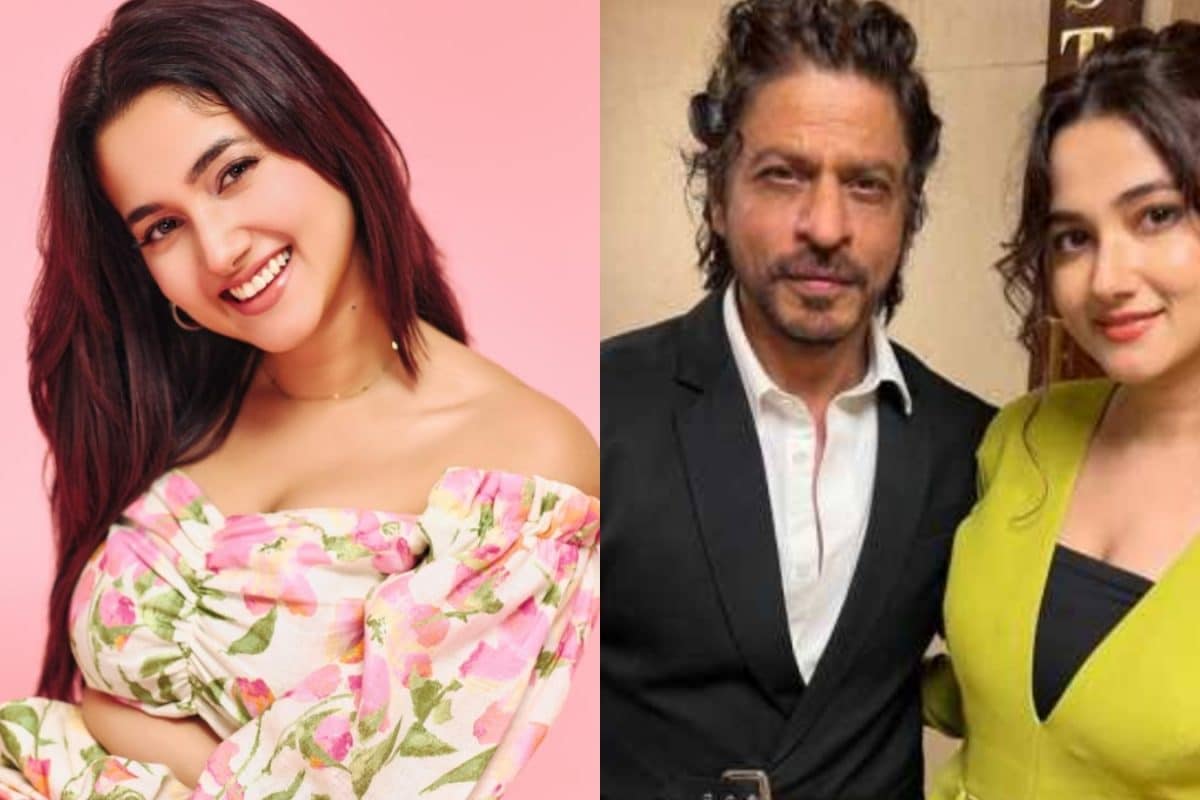
Aaliyah Qureishi Recalls Going 'Full Heroine' With Shah Rukh Khan: 'Jumping Off A Bridge With Him Was...' | Exclusive

In this exclusive interview with News18 Showsha, Aaliyah Qureishi—actor, singer, and all-around creative force—opens up about her unforgettable stunt scene with Shah Rukh Khan in Jawan, channeling teenage chaos for Nadaaniyan, and why she believes in slow love in a fast world.








